Chennai has 545 Christian organizations of various hues engaged in various activities impacting public life and society, and operating in various spheres in the non-profit (NGO) and/or charitable sector, which received foreign funding. These organizations are registered with the Ministry of Home Affairs and have submitted their annual FCRA returns.
Of these, a significant number are directly run by the Christian Church or are affiliated to one or the other Church denomination or are missionary organizations. The foreign funding received by these Christian organizations shown in the following graphic are for the year 2011-12. They are ranked in the order of the sum they have received—the organization that received the highest funding is ranked at 1 and so on.
The total amount received by these Christian organizations based out of Chennai and its suburbs during the year 2011-12 is INR 543.97 crores.
Thanks to Sigh Baboo for his inputs and data analysis. – IndiaFacts, 21 January 2015
See also
- Foreign funding of NGOs reaches new high – R. Vaidyanathan
- Government cracks down on foreign funding of Christian NGOs – News Bharati
- NGOs in Tamil Nadu which received over one crore of foreign funds in 2009-2010 & 2010-2011 – GOI
Filed under: india | Tagged: christian, christian missionaries, christianity, conversion, foreign funds, india, madras-chennai, missionaries, missionary organizations, NGOs, proselytism |



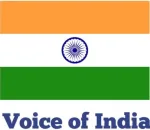

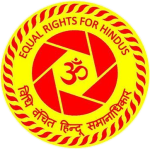



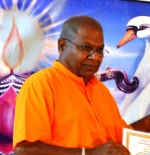


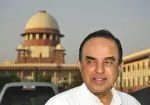
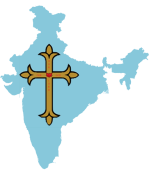




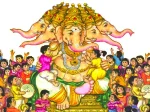



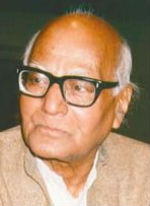





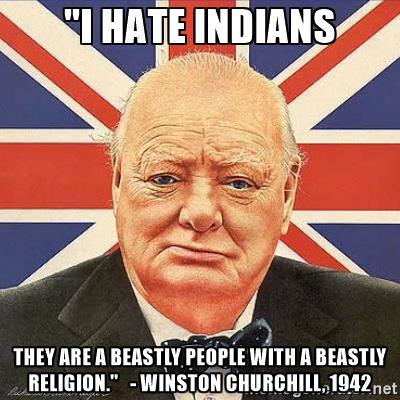
NGOs in Tamil Nadu which received over one crore of foreign funds in 2009-2010 & 2010-2011 – GOI
LikeLike
Christian conversion in Tamilnadu is increasing by the day. Successive DMK and AIADMK governments have turned a blind eye to the massive foreign remittance to Christian missionaries in the names of fake NGOs. They are in connivance with Christian leaders of various denominations in return for collective voting. For example, there was a secret meeting between Jayalalitha and Christian leaders before the 2011 election wherein an assurance was given that she, if elected, will give unfettered access for foreign missionary funding and for carrying on aggressive conversion activity across the state. In return she was assured of Christian vote (which is hovering near 20%) in TN. The population census does not give an accurate demographic picture of Christians in TN because they do not disclose their Christian identity for fear of losing reservation benefits. Most Christian converts in TN go around with Hindu sounding names and hence never get reported as Christians. The reality is that the Christian population is increasing rapidly with the support of the entire Dravidian movement. Dravidar Kazhagam has been the biggest financial beneficiary of missionary funds and hence have been carrying on a singular crusade against Hinduism while putting on a front of atheism. In reality it is just another front for Christian missionaries to weaken Hinduism and to encourage and actively support Christian conversion.
LikeLike
Dear Friends,
This is to invite you to on a daylong conference “Towards a Rational Government Policy for NGOs” being organized by Indic Studies Network (IsNew) at the India International Centre, Conference Hall 2, Max Mueller Marg, Lodhi Estate, New Delhi, on January 31, 2015 from 10 am to 7 pm. A detailed ‘Background Note’ is given below.
Confirmed speakers include:
Prof. Vaidyanathan, IIM Bangalore
Rajiv Malhotra, Infinity Foundation, Princeton, USA
Dr JK Bajaj, Centre for Policy Research
John Dayal, Secretary-General, the All India Christian Council
Harsh Mander, Director, Centre for Equity Studies
Dunu Roy, Hazard Centre
Madhu Purnima Kishwar, Prof CSDS & Founder MANUSHI
We have attempted to bring together diverse voices—those that speak for NGOs as well as the critics of NGOs. With that in view we sent invites to several NGO representatives. Only three—Harsh Mander, Dunu Roy and John Dayal–very graciously and promptly accepted the invite. But the following declined or have not responded till date:
Renana Jhabwala/ Reema Nanavati, SEWA
Greenpeace
Javed Anand, Citizens for Justice & Peace
Kavita Ramdas, Ford Foundation
Dr. Joseph D’Souza, Dalit Freedom Network
HIVOS
Kamla Bhasin, SANGAT/Jagori
Shabnam Hashmi, ANHAD
Ruth Manorama, NAWO. (Response awaited)
However, if any other NGO representatives would like to present their viewpoint, they should let us know asap.
We hope to make the deliberations interactive. In each session there will be a 20 minute presentation followed by 40 minutes of discussion.
We also request other participants to confirm their presence so that we can make food and other arrangements accordingly.
We look forward to an early response,
K Gopinath, Madhu Purnima Kishwar
………………………….
Background Note
Some months ago the present NDA government imposed certain restrictions on select NGOs on the basis of IB report entitled, “Impact of NGOs on Development” prepared by the previous UPA Government listing certain NGOs like Green Peace for leading high-powered campaigns against key development projects in the country ostensibly at the behest of foreign powers hostile to India’s progress. Subsequently, Ministry of Home Affairs sent notices to 21,493 NGOs registered under the FCRA (Foreign Exchange Regulation Act), 2010, for their failure to submit accounts as is mandatory under the law. But as per the CBI report submitted to the Supreme Court, only 10% of 22 lakh plus NGOs in India submit their tax returns to the Government. So why were only 21493 NGOs selected for notices? (Reported in The Hindu, January 6, 2015).
On January 1 2015, the NDA government clamped down on four US funded groups—namely AVAAZ (New York), BIC (Washington), 350.org (New York) and Sierra Club (California). According to RBI, these NGOs were not registered with the Government of India. The MHA has directed the RBI to freeze all foreign funding into the accounts of these NGOs.
Leading NGOs (NGOs) have dubbed this crackdown as political vendetta and accused the BJP of crushing political dissent in the country through these means. It is unfortunate that the government has not clarified why the clamp down is restricted to select NGOs whereas numerous others working on similar or identical issues have been spare
Varieties of NGOs
Broadly speaking, there are nine kinds of NGOs However their functions often overlap:
1) Advocacy groups: These NGOs pick up select issues and causes –such as environment or the cause of specific social groups perceived to be disadvantaged—such as women, SCs, STs, religious minorities–for advocacy campaigns. ANHAD, MAJLIS, Lawyers Collective, Centre for Science and Environment, Voluntary Health Association of India, Citizens for Justice and Peace fall in this category.
2) Consultancy and Research organisations working on social, political and developmental issues such as Centre for Policy Research;
3) Training/ Capacity Building organisations: Such NGOs claim to help other NGOs with capacity building programs of the staff of other NGOs;
4) Networking organisations: They provide supportive platforms for other NGOs in specific fields. AVARD, VANI and NAWO are examples of this type;
5) Service Providers: Secular NGOs involved in providing services to neglected populations by setting up schools, health centers, hospitals and undertaking rural development work. They directly work with select communities, both in rural and urban areas. Anna Hazare’s Hind Swaraj Trust, SEARCH founded by Drs. Abhay and Rani Bang are good examples.
6) National organisations: They operate at a national scale for specific vulnerable groups or causes as for example CRY, Help Age India, Concern India, etc.;
7) Religious NGOs: These include organizations setup by various denominational groups of various faiths – Hindu, Muslim, Christian, etc. They may also be involved in servicing communities and undertaking development work in villages or urban slums. Many of them are aggressively pursuing proselytization backed by the enormous financial resources and political backing they get from foreign agencies. World Vision is a good example of such an NGO;
8) NGOs working for law and policy reform such as Lawyers Collective, PILSARC, Human Rights Law Network, Centre for Science and Environment;
9) International Mother NGOs: These are recipients of funds as well as givers. They have a work focus but instead of implementing projects they identify projects and monitor, evaluate and build capacities of other participating NGOs. CARE and Oxfam are examples of such mother NGOs.
However, these categories are not mutually exclusive. In fact, many NGOs are active in multiple domains.
Government Charges against NGOs
On the one hand, NGOs have come to acquire unprecedented influence and clout over policy and law making by the Government of India as well as defining political agendas and terms of public discourse in our country. They have been included in decision-making bodies of various ministries and key government departments.
On the other hand, the Government of India claims to have accumulated massive evidence of malpractices by foreign-funded NGOs. The charges include:
Misappropriation of funds, corruption scams, lack of transparency and accountability: CBI analysis of 22 lakh NGOs across the country showed that of the 22,39,971 NGOs functioning in 20 States, only 10% (about 2,23,428) submitted annual returns. In six of the Union Territories, of the 5,684 NGOs, only 50 filed their balance sheets. In the Northeast, none of the NGOs in Assam, Manipur, Meghalaya, Nagaland and Tripura file returns. (as reported in The Hindu, January 6, 2015)
– Indulging in political activity, including interference in electoral politics, in violation of one of the core conditions of FCRA rules and regulations, which specifically prohibit NGOs from engaging in politics.
– Interventions in economic policies allegedly at the behest of foreign agencies causing enormous damage to India’s growth potential;
– Endangering geopolitical security of India, including support to secessionist movements; Many NGOs claiming to be involved in “human rights”, “social studies and empowerment”, “rural development” are alleged to be fronts for India-based or foreign-supported extremist political organisations with socially disruptive agendas.
– Damaging the delicate social fabric of India by indulging in proselytisation activities.
Our Conference will debate the following issues:
– Are NGOs being targeted arbitrarily and maliciously or is there concrete evidence of malafide actions by the NGOs put under government scanner or those whose funds have been frozen?
– Is foreign funding of NGOs desirable and necessary? Or is it due to lack of other options?
– Does government funding of NGOs leave them easy targets of political manipulations? Can organisations call themselves “Non Government” if they are dependent on government funding?
– Are NGOs dependent on government and foreign funding because none is available within India? What other sources of funding can be made available to NGOs?
– How satisfactory are the existing accountability mechanisms for NGOs? Is there need for better mechanisms to ensure that NGOs function in a transparent manner?
– Need for a coherent, rational and transparent policy towards NGOs and ways to arrive at it.
Please confirm your participation at the earliest at the following email address:
madhukishwar@manushi-india.org or contact number: 09899971741
Madhu Purnima Kishwar
K Gopinath
GO TO WEBSITE
LikeLike